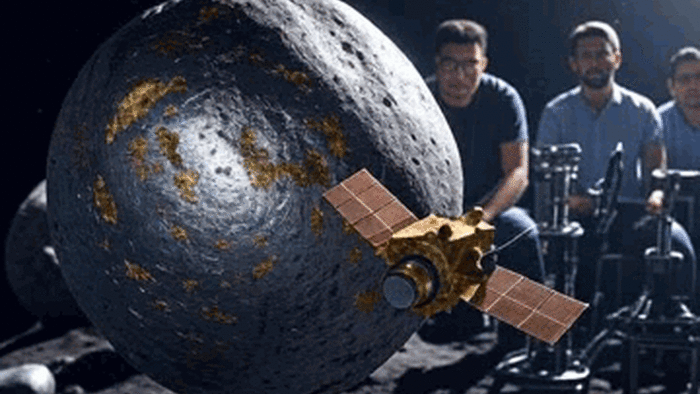


Imagine hauling in enough platinum, gold, and rare earth metals to bankroll every American's wildest dreams–or potentially tank the global economy overnight. That's the high-stakes gamble NASA and a cadre of innovative U.S. startups are wagering on the untapped riches of asteroids.
As NASA's Psyche spacecraft hurtles toward its 2029 mission toward the metal-rich asteroid that shares the same name as the mission, a cadre of U.S. startups is accelerating efforts to turn celestial rocks into a viable business, potentially reshaping global supply chains for critical minerals. Yet the venture carries risks of market disruption, echoing historical commodity booms and busts. Launched in October 2023 aboard a SpaceX Falcon Heavy rocket, the Psyche mission is on course to orbit Asteroid 16 Psyche by late July 2029, where it will spend two years mapping the body's composition.
Led by Arizona State University's Lindy Elkins-Tanton, Psyche targets what scientists believe is the exposed core of an ancient protoplanet, rich in iron, nickel and other metals potentially valued in the "quadrillions of dollars"—"15 zeros," as Ms. Elkins-Tanton put it in a recent interview with Space. The economic allure is clear: The asteroid belt between Mars and Jupiter harbors vast deposits of platinum for catalysts, cobalt for batteries, iron for steel and gold for electronics. NASA's estimates suggest mining just 10 such bodies could generate $100 million per Earth resident, totaling $1.5 trillion.
However, the mission, unsurprisingly, is no cake walk, as commercialization hinges on controlled extraction to avoid flooding markets. An oversupply of rare earths, which is vital for iPhones, electric vehicles and defense tech, could trigger price collapses akin to oil gluts, stranding terrestrial miners and suppliers.
The daunting potential consequences don't scare companies like California-based TransAstra, which is refining optical mining, using concentrated solar energy to process water-laden asteroids. The technique encases targets in polyamide enclosures and vaporizes volatiles to yield pure metals, a process the company's CEO, Joel Sercel, likens to wielding the sun as a blowtorch, according to Space.
TransAstra narrowly missed a test run last fall with mini-moon 2024 PT5, a fleeting orbital visitor that lingered for nearly two months; such opportunities arise sporadically, perhaps yearly or every decade, per former Tethers Unlimited co-founder Rob Hoyt. Hoyt's Tethers Unlimited, inspired by NASA consultant and sci-fi author R.L. Forward, once pitched net-and-tether systems to capture and tow asteroids into Earth orbit for robotic disassembly, notes Space.
This crop of startups is the first to attempt to mine the cosmos.
Early attempts like Planetary Resources, founded in 2012 with backing from Hollywood director James Cameron, Google bigwigs Eric Schmidt and Larry Page and Virgin CEO Richard Branson, invested millions in probes for water and metals prospecting. The firm restructured amid financing woes but seeded the sector's ambitions.
